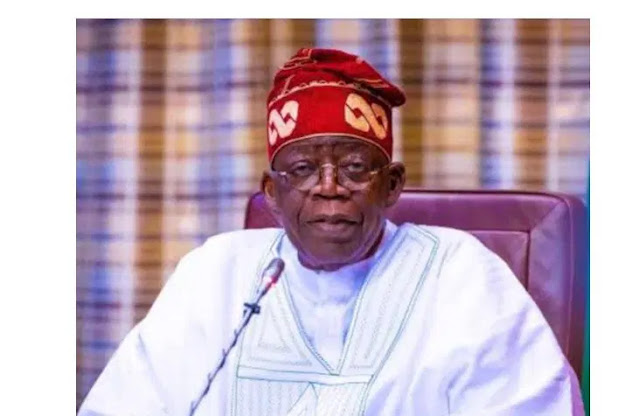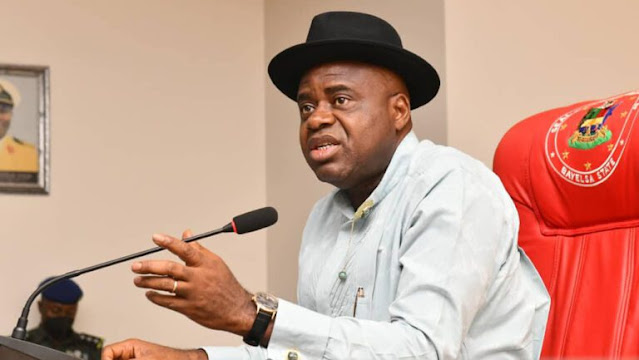In a surprising turn of events, President Bola Ahmed Tinubu has reversed recent management changes at the Nigerian Television Authority (NTA), directing the recall of the Director-General, Mr. Salihu Abdullahi Dembos, and the Executive Director of News, Mr. Ayo Adewuyi, to their previous roles. The decision, announced on September 2, 2025, comes just days after the appointment of new leadership for the agency, sparking widespread reactions across Nigeria’s social media landscape and raising questions about the administration’s decision-making process. This development, reported by Linda Ikeji’s Blog, has ignited debates about governance, policy consistency, and the broader implications for Nigeria’s public institutions. Below is an in-depth exploration of the event, its context, and the multifaceted reactions it has elicited.
The Announcement and Its Context
On August 20, 2025, the Presidency released a statement announcing the appointment of Rotimi Richard Pedro as the new Director-General of the NTA, alongside Stella Din as the Executive Director of News, Karimah Bello as the Executive Director of Marketing, and a Managing Director for NTA Enterprises. The move was framed as part of President Tinubu’s efforts to strengthen national broadcasting and reposition the NTA for greater efficiency and impact. However, less than two weeks later, on September 2, 2025, a statement from Bayo Onanuga, the Special Adviser to the President on Information and Strategy, announced the reversal of these appointments, reinstating Dembos and Adewuyi to their respective positions.
According to the statement, Mr. Salihu Abdullahi Dembos, who was appointed as NTA Director-General in October 2023, will now return to complete his three-year tenure. Similarly, Mr. Ayo Adewuyi, appointed as Executive Director of News in 2024, will resume his role to serve out his term, which is set to end in 2027. The directive effectively nullified the earlier appointments of Pedro, Din, Bello, and the Managing Director of NTA Enterprises, with no detailed explanation provided for the sudden reversal. This abrupt policy shift has left many Nigerians questioning the rationale behind the decision and its implications for the Tinubu administration’s credibility.
The NTA, established in 1977, is Nigeria’s premier public broadcasting institution, tasked with providing news, entertainment, and educational content to millions of viewers across the country. As a key government agency, its leadership plays a critical role in shaping public discourse and promoting national unity. The rapid reversal of such high-profile appointments has thus sparked significant public interest, with Nigerians taking to social media platforms to express a range of opinions, from frustration and skepticism to cautious support.
Public Reactions on Social Media
The news of the reversal quickly became a trending topic on social media, particularly on X, where Nigerians voiced their opinions on the administration’s handling of the situation. Many expressed dismay at what they perceived as a lack of coherence in governance, arguing that the decision to reverse the appointments so soon after they were made reflects poorly on the administration’s planning and stability. A common sentiment was that such flip-flopping undermines public confidence in the government’s ability to make informed and consistent decisions.
One X user commented, “This is a clear sign of confusion in the Tinubu administration. How do you appoint someone today and reverse it tomorrow? It shows a lack of direction and poor decision-making.” Another user echoed this sentiment, stating, “Reversing appointments within days is not a good look for any government. It makes you wonder if they even thought it through in the first place.” These reactions highlight a broader frustration with what some perceive as administrative indecision, particularly in a country grappling with multiple economic and security challenges.
Others pointed out the potential impact on the morale of the appointees and the NTA as an institution. The sudden removal of Rotimi Pedro and his team, only to be replaced by the previous leadership, was seen by some as a public embarrassment for those involved. “Imagine being appointed DG of NTA, only to be sacked in less than two weeks. This is not how to run a country,” one user remarked. The sentiment underscores the human cost of such decisions, as public servants face uncertainty and reputational challenges due to abrupt policy changes.
However, not all reactions were critical. Some Nigerians defended the President’s decision, arguing that the reversal demonstrates a willingness to correct mistakes and prioritize competence. One supporter wrote on X, “If Tinubu realized the new appointments weren’t the best fit, it’s better to reverse them now than let the wrong people lead NTA for years. It shows he’s listening and ready to act.” This perspective suggests that the recall of Dembos and Adewuyi could be an attempt to maintain continuity and leverage their experience, given their prior tenures at the agency.
The Role of the NTA and Its Leadership
The Nigerian Television Authority is a cornerstone of Nigeria’s media landscape, with a mandate to inform, educate, and entertain the public while promoting national values. Its leadership is responsible for overseeing content development, managing a vast network of stations across the country, and ensuring that the agency remains relevant in an increasingly digital media environment. The Director-General and Executive Directors play pivotal roles in shaping the NTA’s strategic direction, making their appointments a matter of national significance.
Salihu Abdullahi Dembos, who was reinstated as Director-General, has a background in broadcasting and public administration. Appointed in October 2023, his tenure was briefly interrupted by the August 2025 appointments, but his recall suggests that the administration values his experience and contributions to the agency. Similarly, Ayo Adewuyi’s reinstatement as Executive Director of News indicates a preference for continuity in the agency’s news operations, which are critical for shaping public perception and disseminating government policies.
The initial appointment of Rotimi Pedro and his team was presented as a move to inject fresh perspectives into the NTA. However, the lack of detailed reasoning for their removal has fueled speculation about internal politics, lobbying, or external pressures influencing the decision. Some analysts suggest that the reversal could be linked to resistance from within the NTA or broader political considerations, though no official statement has confirmed these theories.
Broader Implications for Governance
The rapid reversal of the NTA appointments has sparked a broader conversation about governance and decision-making under President Tinubu’s administration. Since taking office in May 2023, Tinubu has faced significant scrutiny over his policies, particularly his economic reforms, such as the removal of fuel subsidies and the floating of the naira. These measures have led to skyrocketing inflation, fuel shortages, and increased hardship for many Nigerians, fueling public discontent and amplifying criticism of administrative missteps.
The NTA saga is seen by some as symptomatic of deeper issues within the administration, including a lack of thorough consultation and strategic planning. Critics argue that the government’s tendency to announce major decisions without adequate preparation or stakeholder engagement risks creating confusion and eroding trust. “This is not the first time we’ve seen this kind of back-and-forth,” one commentator noted on X. “It happened with the fuel subsidy removal, and now it’s happening with appointments. The government needs to get its act together.”
Others, however, view the reversal as a pragmatic response to feedback or new information. Governance, they argue, is an iterative process, and the ability to reverse a decision in the face of potential errors is a sign of flexibility rather than weakness. This perspective aligns with the administration’s narrative of being responsive to public needs, as evidenced by initiatives like the ministerial press briefings mandated by Tinubu in February 2025 to enhance transparency and accountability.
The Political and Social Context
The NTA leadership reversal must also be understood within Nigeria’s complex political and social context. The country is grappling with multiple challenges, including economic instability, insecurity, and ethnic tensions. The Tinubu administration, now in its second year, is under pressure to deliver on its “Renewed Hope” agenda, which promised economic recovery, job creation, and improved governance. However, rising costs of living, unemployment, and persistent insecurity have fueled public frustration, making any perceived misstep a lightning rod for criticism.
Social media has become a powerful platform for Nigerians to express their grievances and hold the government accountable. The reactions to the NTA appointments reflect a broader trend of citizens using platforms like X to scrutinize government actions and demand transparency. The hashtag #NTAAppointments trended briefly on September 2, 2025, as users debated the implications of the reversal and shared memes mocking the administration’s apparent indecision.
The incident also highlights the polarized nature of Nigerian politics. Supporters of the All Progressives Congress (APC), Tinubu’s party, were more likely to defend the reversal as a corrective measure, while opposition supporters, particularly from the Peoples Democratic Party (PDP) and Labour Party (LP), seized the opportunity to criticize the administration. Comments on X included references to past controversies, such as allegations of electoral irregularities in the 2023 presidential election, with some users suggesting that the NTA reversal is part of a pattern of inconsistent governance.
The Role of Bayo Onanuga and Public Communication
Bayo Onanuga, the Special Adviser to the President on Information and Strategy, played a central role in communicating both the initial appointments and their reversal. His statement on September 2, 2025, was concise but lacked detailed reasoning, which contributed to the public’s speculation and confusion. Onanuga’s role as a key spokesperson for the administration places him at the forefront of managing public perception, and his handling of this issue has drawn mixed reactions.
Some Nigerians praised Onanuga for promptly announcing the reversal, arguing that transparency in acknowledging a change of course is preferable to silence or denial. Others, however, criticized the lack of clarity in the statement, with one X user writing, “Bayo Onanuga should tell us why the appointments were reversed. Nigerians deserve to know what’s going on behind closed doors.” The absence of a detailed explanation has fueled theories about internal power struggles, regional politics, or external pressures influencing the decision.
Onanuga’s broader track record as a spokesperson has also come under scrutiny. In May 2025, he faced criticism for dismissing Nigerians’ complaints about economic hardship, accusing them of having “short memories” about the state of the economy before Tinubu’s tenure. His comments on the NTA reversal have thus been viewed through the lens of his previous statements, with some accusing him of downplaying public concerns.
The Broader Media Landscape
The NTA leadership saga also raises questions about the role of public media in Nigeria. As a government-owned broadcaster, the NTA is often seen as a mouthpiece for the administration in power, tasked with promoting government policies and shaping public opinion. The rapid turnover in its leadership has sparked concerns about the agency’s ability to maintain independence and credibility, particularly in an era of increasing competition from private media and digital platforms.
The rise of social media and citizen journalism has further complicated the NTA’s role. Nigerians are increasingly turning to platforms like X, YouTube, and independent blogs for news and analysis, bypassing traditional outlets like the NTA. The public’s reaction to the leadership reversal reflects this shift, with many Nigerians relying on social media to voice their opinions and access alternative perspectives.
Linda Ikeji’s Blog, which reported the story, is a prominent example of Nigeria’s vibrant digital media landscape. With millions of readers, the platform has become a key source of news and commentary, amplifying public reactions and shaping narratives. The blog’s coverage of the NTA saga, complete with excerpts from social media posts, highlights the growing influence of online platforms in holding the government accountable and fostering public discourse.
Lessons and Recommendations
The reversal of the NTA appointments offers several lessons for the Tinubu administration and future governments. First, it underscores the importance of thorough consultation and due diligence before announcing major appointments. The rapid reversal suggests that the initial decision may not have been fully vetted, leading to embarrassment for both the appointees and the administration.
Second, the incident highlights the need for clear and transparent communication. The lack of a detailed explanation for the reversal has fueled speculation and eroded public trust. Future announcements should include sufficient context to avoid confusion and demonstrate accountability.
Third, the episode underscores the power of social media in shaping public perception. The Tinubu administration must recognize the influence of platforms like X and engage with them proactively to manage narratives and address public concerns. Ignoring or dismissing social media criticism risks alienating a significant portion of the population, particularly younger Nigerians who are active online.
Finally, the NTA saga points to the broader challenge of stabilizing Nigeria’s public institutions. Frequent leadership changes, whether at the NTA or other agencies, can disrupt operations and undermine morale. The administration should prioritize continuity and competence in its appointments to ensure that institutions like the NTA can fulfill their mandates effectively.
Conclusion
The reversal of the NTA leadership appointments by President Bola Tinubu has sparked a firestorm of reactions across Nigeria, reflecting broader concerns about governance, transparency, and policy consistency. The decision to recall Salihu Abdullahi Dembos and Ayo Adewuyi, just days after appointing new leaders, has raised questions about the administration’s decision-making process and its commitment to stable governance. Social media platforms, particularly X, have amplified these concerns, with Nigerians expressing a mix of frustration, skepticism, and cautious support.
As Nigeria navigates its complex challenges, from economic hardship to insecurity, the Tinubu administration must prioritize strategic planning, transparent communication, and stakeholder engagement to rebuild public trust. The NTA, as a vital public institution, plays a critical role in this process, and its leadership must be equipped to navigate the evolving media landscape. While the reversal may have been intended as a corrective measure, it serves as a reminder of the need for careful deliberation and accountability in governance. As Nigerians continue to voice their opinions online and demand better leadership, the administration has an opportunity to learn from this episode and chart a more stable and effective path forward.






